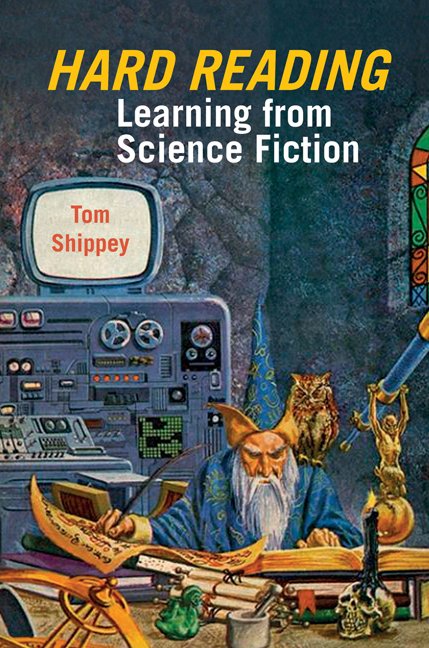Book contents
- Frontmatter
- Dedication
- Contents
- List of Figures
- Note on References
- A Personal Preface
- What SF Is
- SF and Change
- SF and Politics
- 11 A First Encounter with Politics
- 12 Language Corruption, and Rocking the Boat
- 13 Just Before the Disaster
- 14 Why Politicians, and Producers, Should Read Science Fiction
- 15 Saying (When Necessary) the Lamentable Word
- References
- Index
12 - Language Corruption, and Rocking the Boat
from SF and Politics
- Frontmatter
- Dedication
- Contents
- List of Figures
- Note on References
- A Personal Preface
- What SF Is
- SF and Change
- SF and Politics
- 11 A First Encounter with Politics
- 12 Language Corruption, and Rocking the Boat
- 13 Just Before the Disaster
- 14 Why Politicians, and Producers, Should Read Science Fiction
- 15 Saying (When Necessary) the Lamentable Word
- References
- Index
Summary
This essay started off as a paper read at a conference on Nineteen Eighty-Four, in 1984, at what was then North-East London Polytechnic. I was not especially keen to take part, but in 1984 it was pretty well mandatory for everyone to read papers on Nineteen Eighty-Four. One reason I was not especially keen was that Nineteen Eighty-Four, along with Brave New World, is one of those works mentioned in item 2, above, only sort-of science fiction, but invariably put on academic sf courses by people who do not know much about it. Both works, along with some other dubious cases, like C.S. Lewis's so-called ‘space fiction’ trilogy, on which I have also written elsewhere, are the kind of sf acceptable to what I call (in item 2, above) the ‘gatekeeper’ paradigm.
However, I did have two things I wanted to say about Nineteen Eighty-Four and about Orwell. As regards Orwell, one reason he was acceptable to the ‘gatekeepers’ was that he was a left-winger, and since humanities professors are overwhelmingly ‘liberal’, that meant he was definitely OK. But he was a very disillusioned and disgruntled left-winger, for several reasons. He fought against Franco in the Spanish Civil War (from the left-wing point of view, that was good), and was gallantly shot through the throat (very good), but when he came back to tell people about it, it turned out he had been fighting with the wrong set of left-wingers (bad) – in fact, for the anarchists (very bad) – and since the communists hated the anarchists more even than they did the monarchists, Orwell found that no one wanted to listen. Israel Gollancz wouldn't publish his book, Homage to Catalonia, and his experience was treated as a non-event. Then the communists found it expedient to make common cause with the Nazis, and even after they had switched sides as a result of Hitler's attack on Stalin, Orwell continued to regard his former allies as potential traitors. One result is that Animal Farm is quite obviously a satire on the Russian revolution. Another is that the dreary despotism of Nineteen Eighty-Four is called ‘Ingsoc’, English Socialism. None of this was at all popular with left-wing critics, who performed strange evolutions trying to prove that Orwell was really on their side.
- Type
- Chapter
- Information
- Hard Reading: Learning from Science Fiction , pp. 229 - 254Publisher: Liverpool University PressPrint publication year: 2016



